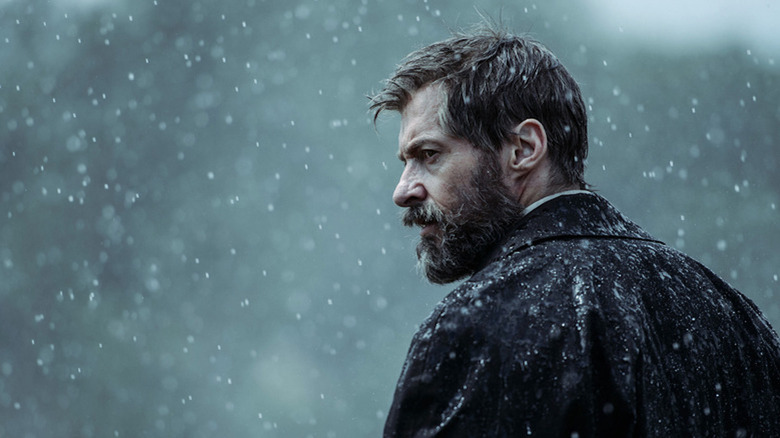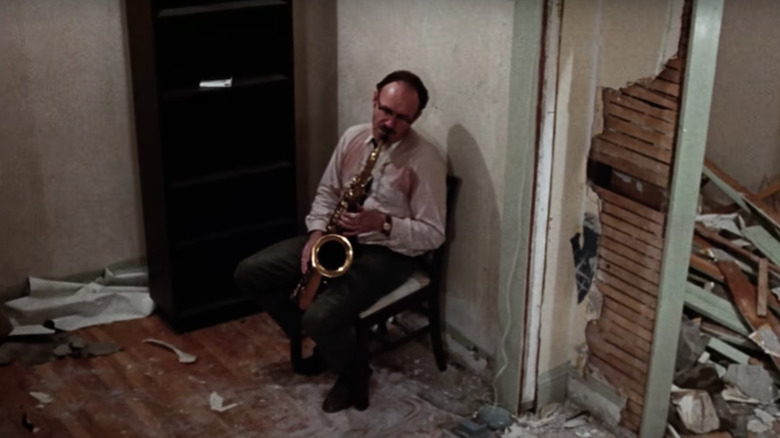One Of The Best Parts Of Logan Was Copied From A Classic Gene Hackman Film
Superhero movies were nearing their maximalist peak in 2017 — "Avengers: Infinity War" was a year away, while the DC Extended Universe was self-destructively racing toward "Justice League" without a roadmap or significant audience buy-in — when James Mangold quietly, confidently subverted the genre with "Logan." There had been attempts at revisionist superhero films before, but they were mostly based on/influenced by explicitly revisionist graphic novels (e.g. Zack Snyder's "Watchmen" and Christopher Nolan's Batman trilogy). Josh Trank's "Chronicle" was probably the boldest of the bunch, but that was a top-to-bottom original.
Mangold's "Logan" was different. It used Hugh Jackman, the man who'd been playing Wolverine for 17 years, to tell an X-Men tale that branched out from the film franchise's narrative to depict a Logan in physical decline. Nothing lasts forever — not even, apparently, Wolverine's mutant healing process. He is in unremitting pain, and each altercation plunges him deeper into agony. He is dying.
Most studios would never let a filmmaker kill off one of its most bankable characters (even in a one-off movie), but 20th Century Fox let Mangold and Jackman make a "Shane"/"Paper Moon" hybrid loaded with R-rated violence and one very final death. It didn't look or sound like a superhero movie, which was due to a series of peculiar choices made by Mangold and his collaborators. And the one aspect of the film that blows me away every time I watch the film is the score by Marco Beltrami. It's somber, soulful and wholly without precedent in the superhero genre. Where do you get an idea like that? According to Mangold, you watch Francis Ford Coppola's "The Conversation."
When Harry Caul Met Wolverine
Coppola's "The Conversation" is the brilliant paranoid thriller he made in between "The Godfather" and "The Godfather Part II." Creatively, he was on fire. From shot composition to casting to design to music, he knew precisely what these films required.
Every element of "The Conversation" is extraordinary, but David Shire's nerve-jangling, piano-heavy score (interspersed with some jazzy cues) goes a long way toward setting the viewer on edge. The deeper Gene Hackman's surveillance expert Harry Caul plunges into a mystery of his own making, the tighter your jaw clenches.
I'll confess that I don't hear a lot of Shire's "The Conversation" in Beltrami's "Logan" theme. The instrumentation — piano, guitar, drums and harmonica — sounds like a melancholy mix of Ennio Morricone and John Carpenter. But foregrounding the piano on a superhero score is incredibly rare, so if "The Conversation" was Mangold's starting point (which he claimed during a live-tweet viewing of "Logan" in 2000) when discussing the music with Beltrami (who also scored the director's "3:10 to Yuma," "The Wolverine," and "Ford v Ferrari"), then that's wonderful. The result is all that matters, and "Logan" might be Beltrami's finest composition.

